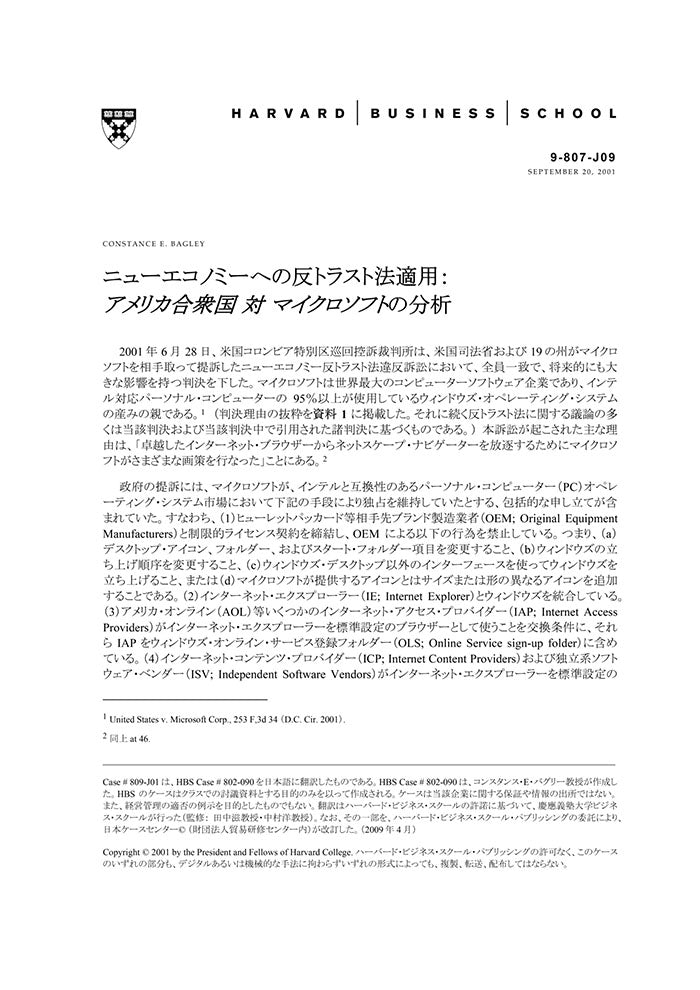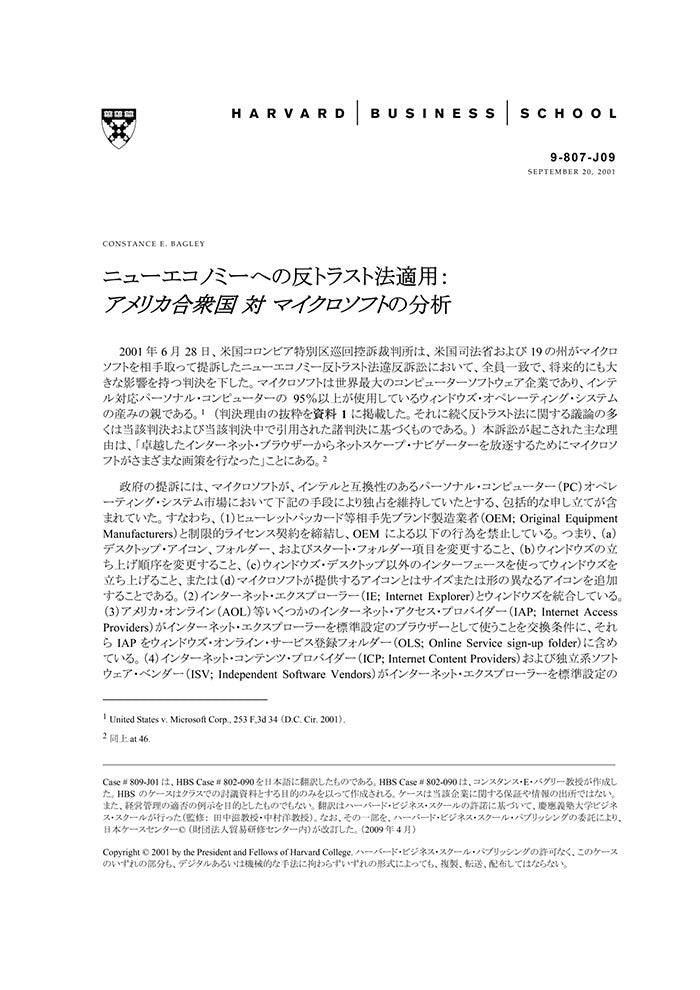ニューエコノミーへの反トラスト法適用:アメリカ合衆国 対 マイクロソフトの分析
受取状況を読み込めませんでした
ニューエコノミー(情報化時代)における反トラスト訴訟として注目された、アメリカ合衆国対マイクロソフト社の訴訟〔253 F.3rd 34 (D.C. Cir. 2001)〕に対し、1991年に下されたコロンビア特別区訴訟裁判所の判決を分析する分析ケース。本件は、マイクロソフトが、ネットスケープのナビゲーターに代わって、インターネット・エクスプローラーをウェブ・ブラウザーの主流に押し上げようとするとした行為に対して起こったものである。このノートは、ネットワークで見られる技術変化の激しい産業における、米国の独占禁止法(特にシャーマン法第1、2項)の適用に対する詳細な議論が示されている。課題として挙げられているものに、1)排他的取引契約の合法性、2)不法独占の要件(法廷が関連市場をどのように定義するか、何が反競争的な行為とみなされるかなどが含まれる)、 3)略奪的価格設定と不可能のルール、4)エッセンシャル・ファシリティの理論、5)知的所有権とビジネス上の正当性(パテントやコピーライトなど)の行使、6)独占の企図をどうはかるかなどがある。米国の控訴裁判所の判決と共に、様々な専門家の議論が要約されている。 Analyzes the 1991 decision of the U.S. Court of Appeals for the District of Columbia Circuit in the seminal New Economy antitrust case United States vs. Microsoft Corp., 253 F.3rd 34 (D.C. Cir. 2001), which arose out of Microsoft's efforts to promote Internet Explorer and to supplant Netscape's Navigator Internet Web browser as the leading browser. This case contains a detailed discussion of the application of the U.S. antitrust laws (Sections 1 and 2 of the Sherman Act, in particular) to technologically dynamic markets characterized by network effects. Issues addressed include: 1) the legality of exclusive dealing arrangements, 2) what constitutes illegal monopolization (including how courts define the relevant market and what constitutes anticompetitive conduct), 3) predatory pricing and the rules of impossibility, 4) the essential facilities doctrine, 5) the exercise of intellectual property rights (such as patents or copyrights) as a business justification, and 6) what constitutes an illegal attempt to monopolize. The U.S. Court of Appeals' decision is summarized, and extensive excerpts from the opinion appear as an exhibit.
【書誌情報】
ページ数:31ページ
サイズ:A4
商品番号:HBSP-1-807-J09
発行日:2001/9/20
登録日:2007/10/2


